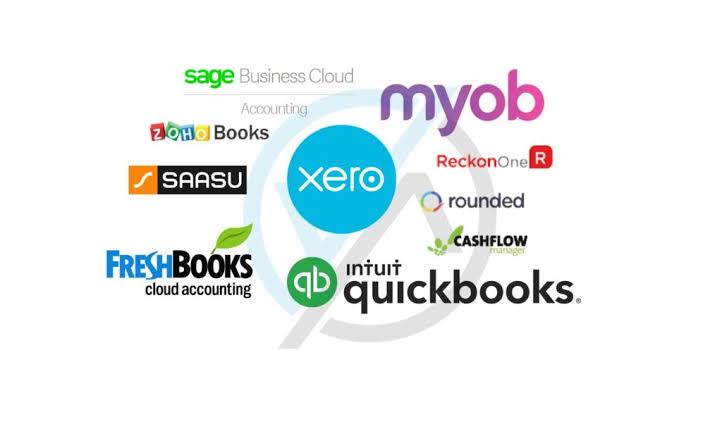Bookkeeping and accounting are essential for the success of any small business. Keeping correct financial records and staying on top of tax requirements are critical for development and success.
As a small business owner, you may struggle to balance bookkeeping chores with your organisation’s other aspects. This is where the concept of hiring a professional bookkeeper comes into play.
In this blog post, we’ll look at how bookkeeping may aid your business and the many benefits of hiring a professional bookkeeper for your small business. We’ll explore how a bookkeeper service may make a difference in your business, why you should consider employing one, and the function of bookkeeping in small businesses to meet your needs.
This blog post is the best guide to understanding the value of professional bookkeeper services for small and medium-sized businesses.
Who Are Professional Bookkeepers?
A business bookkeeper documents business transactions in journals and ledgers before summarising them in financial statements. They execute similar tasks, such as processing invoices, reconciling figures, and preparing tax returns.
A bookkeeper’s tasks include organising daily financial procedures and presenting data for future use, such as budgeting or fundraising. They may also serve as the foundation for a more complete finance team once strategic analysis and forecasting become a focus.
What Does Having a Professional Bookkeeper Look Like?
Imagine having a clear and comprehensive picture of your company’s financial health at your fingertips. Professional bookkeeping allows you to:
- Make informed decisions: Keeping accurate records allows you to understand your spending habits, determine profit margins, and make strategic investments.
- Remain compliant: Avoid costly fines and penalties by following ever-changing tax requirements and reporting deadlines.
- Save Time and Money: Delegate the time-consuming data entry and record-keeping process, allowing you to focus on vital business tasks.
- Get Peace of Mind: Sleep easily, knowing your finances are in the skilled hands of a professional, enabling you to focus on what you do best is ____ running your business.

The Importance of Accurate and Organised Financial Records
Keeping accurate and well-organized financial records is critical for a multitude of reasons.
- It provides a clear view of your business’s financial health, allowing for informed decision-making. It also helps with appropriate tax reporting and avoiding penalties or audits.
- Simplifies the application for loans or attracting investors.
- It helps to discover trends or possible concerns, enabling quick remedial action.
Promotes long-term business growth and profitability. - A skilled bookkeeper is critical to managing your company’s finances efficiently and effectively, resulting in strategic financial operations, better decision-making, and overall profitability.
A Bookkeeper’s Main Responsibilities Include
Professional bookkeepers are responsible for a variety of tasks, including:
- Recording and categorising financial transactions.
- Reconciling bank and credit card balances.
- Managing accounts receivable and payable.
- Creating financial statements, including balance sheets and income statements.
- Maintaining correct records for tax compliance.
- Help with budgeting and financial planning.
Proven Benefits of Professional Bookkeeper Services
Hiring a competent bookkeeper has various advantages that can considerably improve the overall success of your small business.
In this section, we’ll look at how a bookkeeper can help you save time, improve financial analysis and decision-making, manage cash flow better, assist with tax compliance and planning, and reduce the risk of fraud and errors.
Time Savings
One of the major benefits of employing a bookkeeper is that you will save time. As a small business owner, time is a crucial resource. With a bookkeeper handling financial chores, you can concentrate on other parts of your business, such as expansion strategies, client connections, and product development.
Improved Financial Analysis and Decision-Making
A competent bookkeeper provides accurate and up-to-date financial information, allowing you to make sound strategic business decisions. They may assist you in identifying patterns, monitoring key performance indicators, and providing insights to better your overall financial management.
Improved Cash Flow Management
A bookkeeper may assist you in tracking outstanding bills, managing accounts payable and receivable, and ensuring a clear picture of your cash status. This enables you to make informed investment, cost, and financial decisions.
Accurate Financial Analysis
A competent bookkeeper provides accurate and up-to-date financial information, allowing you to make sound strategic business decisions. They may assist you in identifying patterns, monitoring key performance indicators, and providing insights to better your overall financial management.
Improved Cash Flow Management
A bookkeeper may assist you in tracking outstanding bills, managing accounts payable and receivable, and ensuring a clear picture of your cash status. This enables you to make informed cash flow management and improve investment, cost, and financial decisions.
Assistance with Tax Compliance and Planning
Maintaining compliance with tax legislation is critical for any organisation. A professional bookkeeper may help guarantee that your financial records are accurate and up to date, lowering the possibility of mistakes while submitting taxes.
They can also aid with tax planning tactics, allowing you to take advantage of deductions and credits while lowering your tax liability.
Reduced Risk of Errors and Fraud
Hiring a bookkeeper can significantly reduce the likelihood of errors and fraud in your financial records. A bookkeeper can assist in protecting your firm from fraudulent actions by keeping accurate and orderly records of monthly business reconciliation.
Common Bookkeeping Services in Australia Include:
- Bookkeeping Management
- Invoicing Management
- Processing of Transactions and Expenses
- Accounts Reconciliation
- Accounts Payable
- Accounts Receivable
- Expense Analysis

Embracing the Value of Professional Bookkeeping
This blog post discussed the advantages of hiring a professional bookkeeper for your small business. To summarise, hiring a bookkeeper can help you save time, improve financial analysis and decision-making, manage cash flow better, assist with tax compliance and planning, and lower the risk of errors and fraud.
A bookkeeper can help your business succeed by providing personalised services and integrating with your existing accounting software and systems.
As a small or medium-sized business owner, you must recognise the benefits that professional bookkeeping services can provide to your operations. By carefully examining your requirements and selecting the correct bookkeeper, you can ensure that your company is well-prepared to face the financial challenges that lie ahead.
































